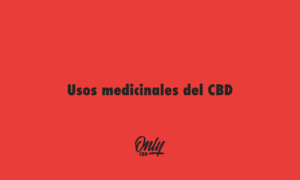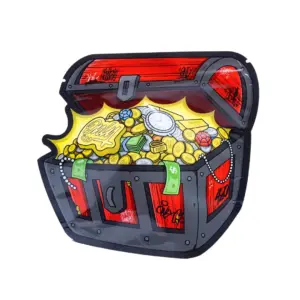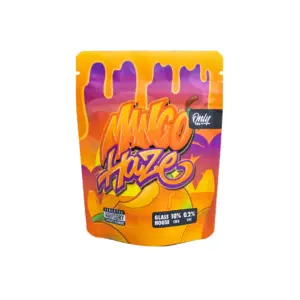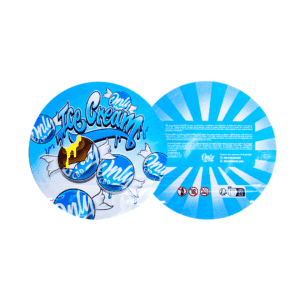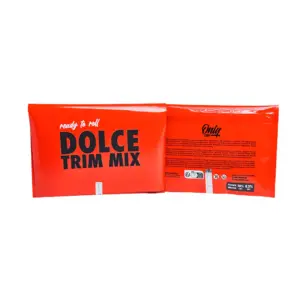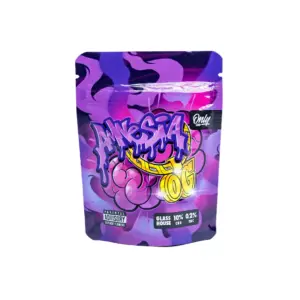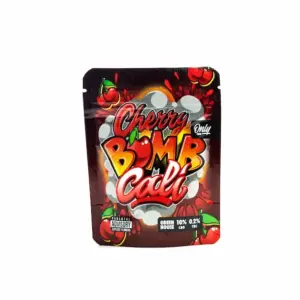Most stores selling CBD products are franchises, primarily from Germany and Italy. They promote the therapeutic properties of this cannabis compound, which helps with anxiety, asthma, arthritis, and also reduces inflammation. These stores are obviously legal, but regulations vary by country. Free trade is based on a ruling by the European Court of Justice that allows the sale of CBD in all European countries, provided it is legally sourced. Switzerland is the country where it is sold most freely.
This disparity in regulations affects both the store and the customer, as we can see when entering a CBD-specialized establishment like the one owned by Mauro Romano in the Gracia neighborhood of Barcelona.
CBD oil: the best-selling oil in Spain
On the shelves, we find a wide variety of products: from foods like pasta, rich in fiber and omega-3 from hemp, to moisturizers. But the best-selling star product is undoubtedly CBD oil, which in Spain is labeled for topical use, not suitable for human consumption, while in other countries it is taken sublingually.
"I can't recommend the best way to take the oil, although the customer has already checked online when they come, and that in many countries it's taken sublingually," explains Mauro, the store manager.
Another product, such as smoked "aromatic flowers," is sold with the customer advised to keep the receipt and not remove the seal from the box until they get home. The smell they give off can give the impression that they are smoking marijuana. This is a way to justify the legal origin of the product in the event of a possible police fine.
The reality is that in this "CBD world," illegal marijuana is always a source of suspicion. Rubén Valenzuela, CEO of the research firm Valenveras, explains why: "CBD and marijuana are substances that come from the same Cannabis Sativa plant, and we can barely distinguish them. The main difference lies in the concentration of tetrahydrocannabinol (THC). When this THC compound reaches 1%, it is psychoactive—it would be marijuana, to put it mildly. When the concentration is 0.2, it is not addictive and we speak of CBD. Hence, international drug trafficking gangs commit robberies on hemp plantations in search of the illegal substance."
Industrial hemp cultivation increases
Interest in CBD in Spain has led to an increase in industrial hemp cultivation, which has multiplied eightfold since 2016, rising from 61 hectares to the current 510.
To legally grow industrial hemp, the seed must be registered with the European Union. This ensures that the CBD content will not exceed 0.2%. If the level is higher, it would be considered an illegal crop, would fail police controls, and the plantation would have to be destroyed.
Morocco approves medical cannabis law, but will continue to penalize "recreational" uses.
Rubén Valenzuela, together with the Polytechnic University of Catalonia (UPC), created Europe's first cannabis hub and explains how they carry out controls to comply with regulations: "We undergo police controls to ensure the THC level is 0.2. If we exceed this level, we are required to destroy the plantation, as cultivation becomes illegal. Weather conditions can alter the THC concentration even if the seed is certified by the European Union."
Different legislations in EU countries
And he goes even further, Rubén Valenzuela questions why each country has a different THC level: "The European Union has already seen this problem and has informed us that in 2023 it will raise this limit from 0.2 to 0.3, but we have to take into account how hemp is evolving around the world. For example, we can see how in Italy there is a 0.5 limit, which gives a tremendous advantage to farmers, and how the Czech Republic is going to impose an increase in THC levels, just like Switzerland. It's important to have a little more leeway. We need to regulate hemp processing so we can process the flower and extract the oil."
The usual use of industrial hemp was for fiber production. In fact, in Spain, the flower cannot be processed to extract CBD oil without special authorization from the Spanish Agency for Medicines and Medical Devices. Very few companies obtain this authorization, only those dedicated to the pharmaceutical industry or research.






